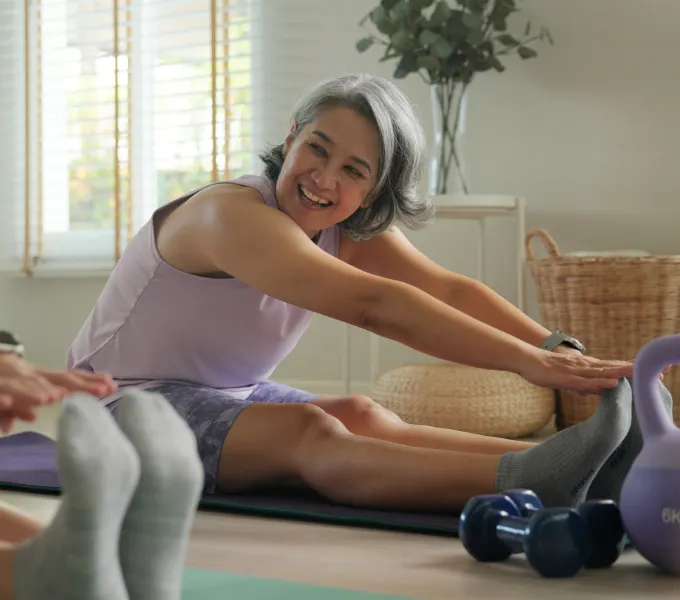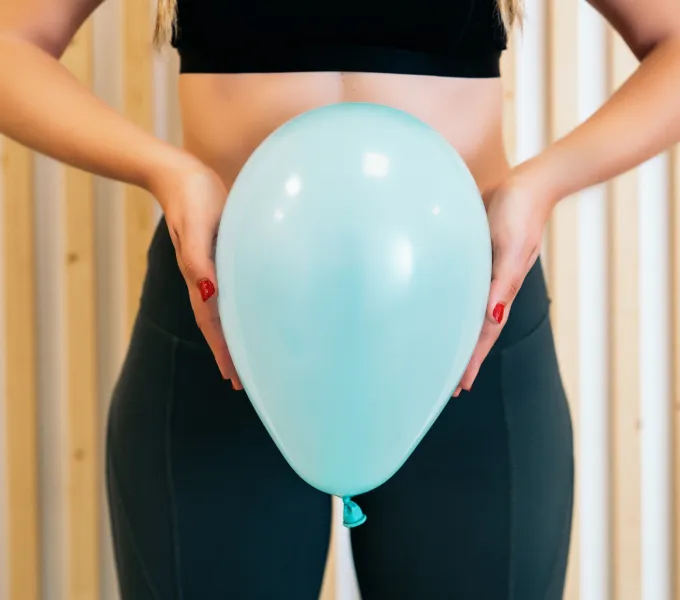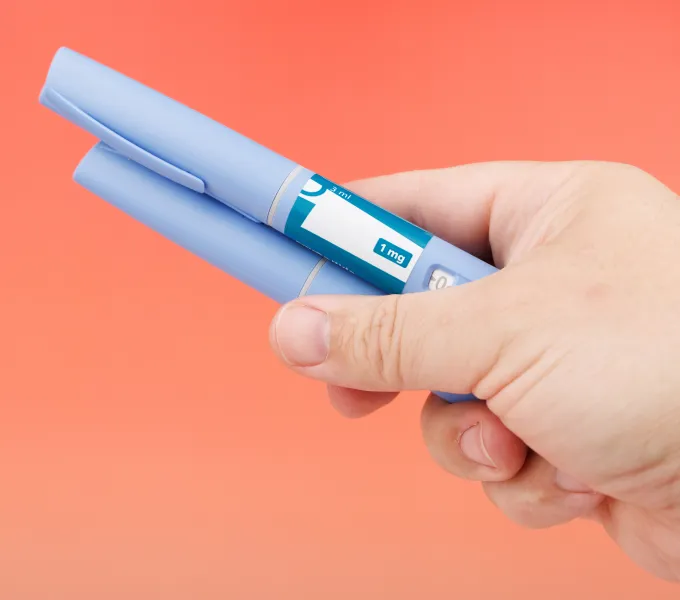
Curious About Pelvic Floor Trainers? Read This Before You Buy
If you're like us, you love smart devices that make it easier (or just more fun) to take care of your body. So you might be wondering if there's a smart device out there that can help treat symptoms of pelvic floor muscle dysfunction, like bladder or bowel leaks, prolapse, or barely-there orgasms.
Well, there are definitely devices available. Called 'kegel exercisers' or 'kegel trainers,' they promise all kinds of amazing results — a stronger pelvic floor in as little as 4 weeks! But do they really work? And will they work for you?
We're here with answers you can trust, plus intel on which devices might be worth trying, depending on your needs.
Pros & Cons of Pelvic Floor Trainers
Strengthening or 'training' your pelvic floor muscles under the guidance of a pelvic floor PT is an undeniably effective way to improve function and reduce certain symptoms, especially bladder leaks. A stronger, more flexible, and coordinated pelvic floor can also lead to improved sexual function, more stable posture and movement, increased circulation, and better all-around bladder and bowel health.
In theory, you'd think that a kegel trainer could help you score some of those amazing perks. Alas, it's not so simple. To date, there isn’t much research on the effectiveness of these devices, even when combined with pelvic floor PT.
Let's talk about the pros and cons.
Pros:
- They can be motivating. Kegel trainers that track and celebrate your progress can be a really helpful motivator, especially when used alongside a PT-recommended strengthening routine.
- They can be reassuring. Most pelvic floor strengthening devices give you feedback to signal that you're successfully contracting your pelvic floor muscles, which can build your confidence.
- They can improve some symptoms. If all your pelvic floor needs is a little straight-forward strengthening to reduce incontinence — and you don't have any other pelvic floor symptoms or imbalances — a kegel trainer may get you results.
Cons:
- They can be expensive. The cheapest pelvic floor strengthening smart device comes in at around $100.
- They can be a hassle. You'll need to clean your device after every session to help prevent infection — that can be a lot if you're aiming for several sessions a day.
- They can be inaccurate. The bio-feedback technology that's meant to indicate if you're properly contracting your pelvic floor muscles (vs pushing or compensating with other muscles) isn't always reliable.
- They can make symptoms worse. Not all muscles that are weak need to be strengthened with kegels. Some muscles need to learn to release, lengthen, and move without pain and/or fear. In these instances, kegel trainers may worsen symptoms.
The Best Pelvic Floor Trainers
Still interested in trying a kegel trainer? We've got you. The models below are our top picks due to their high-quality materials, helpful features, and innovative design.
The Elvie Trainer

Overview: The Elvie Trainer is a small device made with medical-grade silicone with a low-energy Bluetooth tail that goes on the outside of the body. The device is BPA-free and 100% waterproof.
Dimensions: 8 cm long x 3.5 cm wide.
How to: To use the Elvie, insert the pebble-shaped sensor into the vagina, connect to the Elvie Trainer app, and choose from a variety of 5-minute pelvic floor workouts. The app directly tracks each lift, squeeze, and hold so you can visually see and track your progress.
Helpful intel: Developed by Elvie’s scientific advisory group including a number of well-known researchers in biofeedback and pelvic floor exercise.
Cost: $199.
The Perifit

Overview: The device is 100% waterproof, BPA-free, phthalate-free, and EA-free, and is made of medical-grade silicone.
Dimensions: 8.3 cm long x 3.1 cm wide.
How to: You can connect to the Perifit App after inserting the device and then get started with one of 12+ pelvic floor games to guide you and track your progress.
Helpful intel: Developed by top pelvic floor therapists and uses clinically proven biofeedback technology.
Cost: $139.
The kGoal Classic

Overview: The kGoal classic includes a smart device made of 100% phthalate-free, body-safe Class VI silicone, and app to help strengthen your pelvic floor.
Dimensions: Maximum rigid diameter of 1.5 inches.
How to: After inserting the kGoal classic, the device uses 360-degree sensing, vibrational, and visual feedback to keep you on track and measure your progress.
Helpful intel: The device was designed in part by Origin’s Head of Clinical Quality, Liz Miracle.
Cost: $149.
The Intimina KegelSmart™

Overview: Made of 100% medical-grade silicone, the KegelSmart™device works without an app.
Dimensions: 3.3 inches long x 1.3 inches wide.
How to: After turning on the small device and inserting it, users will feel 3 quick vibrations that signal the start of the guided exercise routine detailed in a free, downloadable manual. The device, removable by string, determines which of its 5 levels the user should practice with, adjusting based on contraction strength and performance.
Helpful intel: Developed with the support of Intima’s medical advisory board of gynecologists and pelvic health experts, the KegelSmart™device is FDA-cleared and CE-marked.
Cost: $99.95.
Get Expert Advice from a Pelvic Floor PT
Find out what your pelvic floor really needs by booking a visit with an Origin PT. After a full assessment, your PT will pack your sessions with expert-guided treatments that may include neuromuscular re-education, evidence-based exercise guidance, and/or manual therapy techniques.
If adding a kegel trainer to the mix is right for you, your PT can answer all your questions and make sure you squeeze the most benefits out of every pelvic floor strengthening session.




